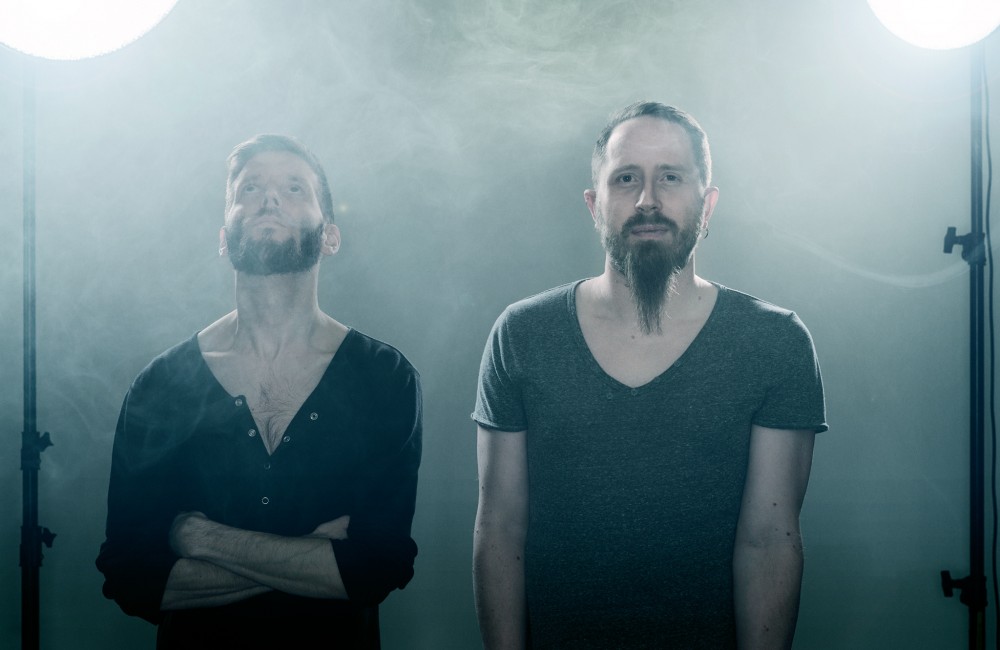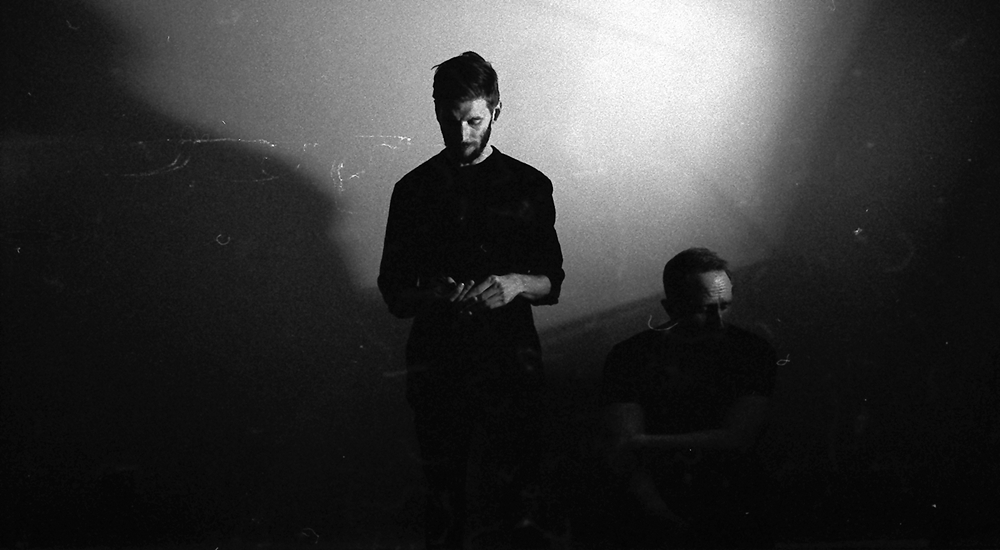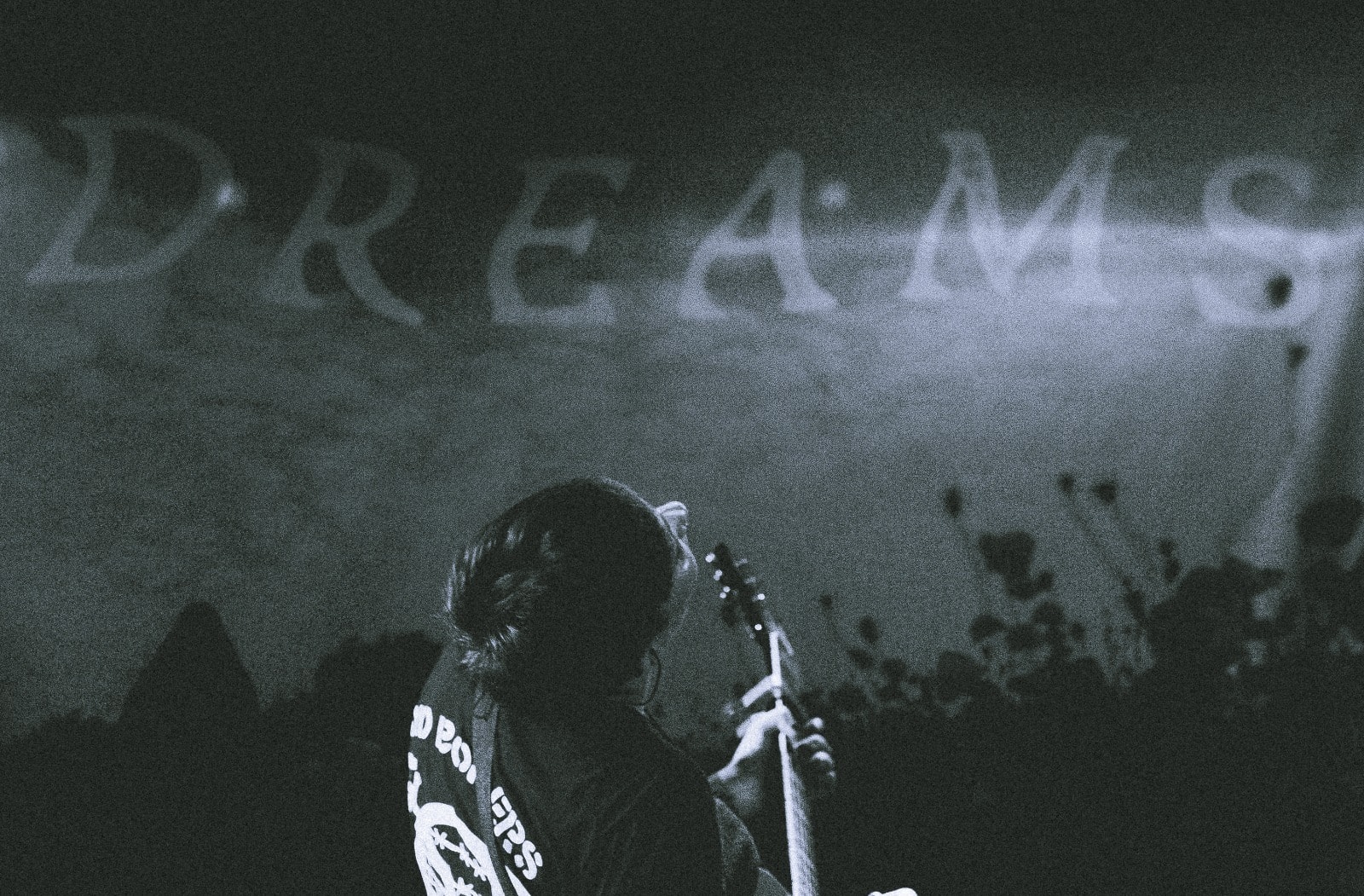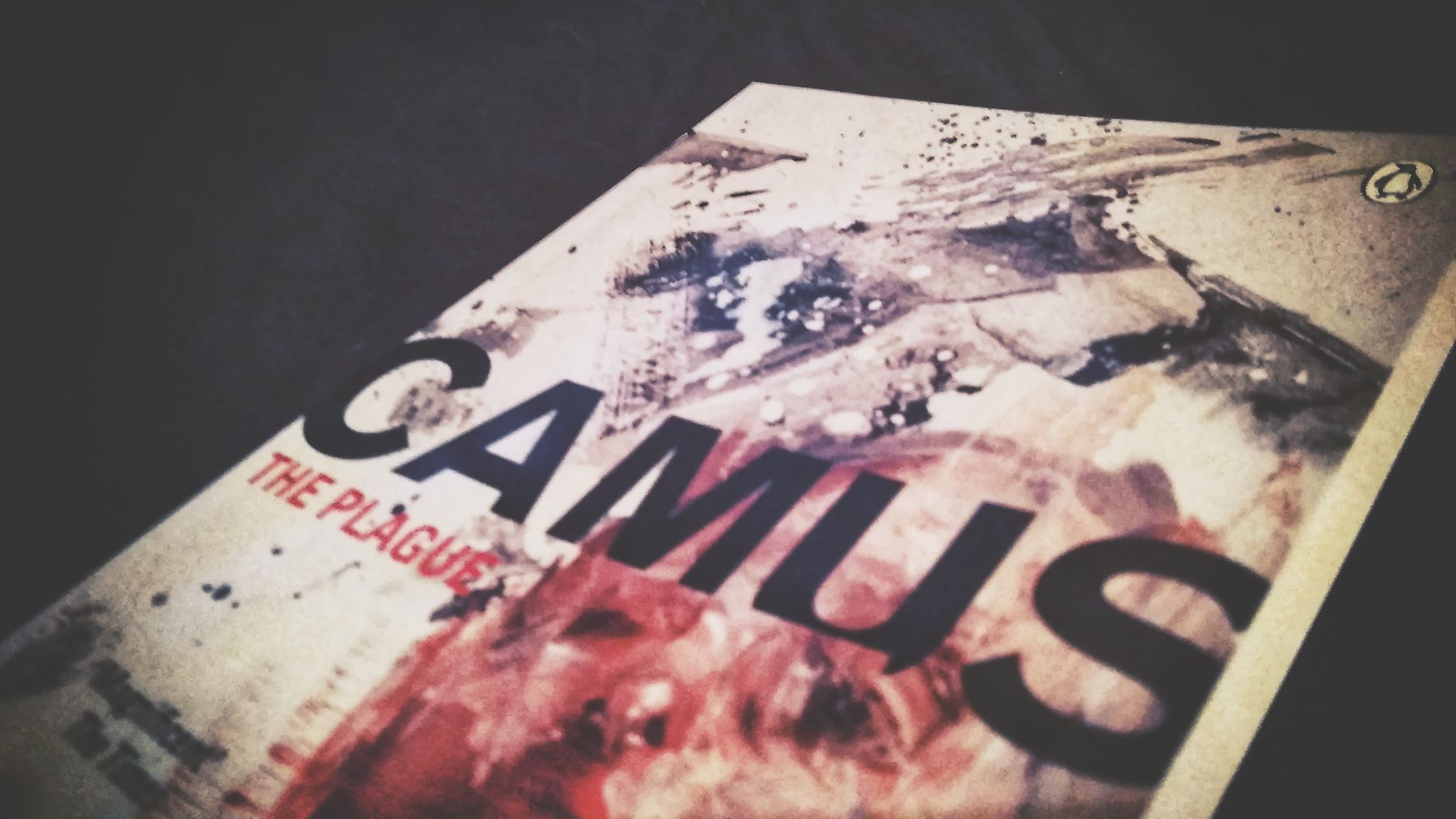A SWARM OF THE SUN is from Stockholm, Sweden consisting of the duo Erik Nilsson and Jakob Berglund. A great deal of the band’s strength can be found in their use of contrast: It is hard and soft, fast and slow, beautiful and flawed. All at the same time. The band draws influences from industrial/post-rock/sludge/post-hardcore and heavier rock, but the band never completely enters any single stage.
Growing up, was music always a big part of your life? Can you recall your first ever musical experience?
Yes, music has always been very present. My dad has always been a huge Pink Floyd fan, and some of my earliest musical memories are of “The Wall” blasting throughout the house. He generally had a soft spot for dramatic progressive stuff – Yes, Marillion, Rush, and stuff like that – but Floyd more than anything. I think it definitely set a foundation for my own musical taste when I was growing up. In my mid-teens, I discovered Nine Inch Nails, and after that, all I cared for was conceptual and immersive music. My two most precious albums during that time were “The Downward Spiral” by NIN and “Soundtracks for the Blind” by Swans, both of which are still excellent.
We are currently living through a very trying and charged time right now so I am curious to know how your own music is reflecting this time period?
It’s definitely reflecting in the sense that we are having a major break from both writing, rehearsing and performing. As are most bands out there I guess. I and Erik have only met in person twice since the pandemic started, and both times outside and with a distance. That’s really not the ideal circumstances for getting new music done. But that’s okay, we’ve had time to focus on other things, like reissuing Zenith and spending time with our families.
I want to ask you about the bands that have been continuous influences for you, but also about new bands and new records that you think are exciting in the progressive/post-rock scene. What do you look at and say “that’s the future of this scene”?
I tend not to think of genres and scenes too much. Obviously, we do fit somewhere in a kind of post-something-or-other scene, but I don’t know what to call it really. Some would say we are too much of something, and some would say we are not enough. And that’s exactly the spot where I want to be, I like art that is hard to categorize. When it comes to progressive/post-rock records I like, I generally lean more towards texturally dense, dark and droney albums. I love “Tunnel Blanket” by This Will Destroy You, everything by Jakob, and “Minor Light” by Fourteen Nights at Sea. Mostly though, I tend to fall back to Godspeed You! Black Emperor and Mogwai. They are hard to beat. At the moment I am really into electronic, ambient, drone, soundtracks. Music with less focus on song structure and melody, and more about guiding you into a state of mind. Both albums by The Haxan Cloak are on heavy rotation. The first one especially is insanely good.
When it comes to influences when we wrote ”The Woods”, we were listening to a lot to Anna von Hausswolff, Swans, Nick Cave & Warren Ellis, Philip Glass, and Year of No Light.
Does the conception come first or does the song evolve naturally – do you have a clear idea of what it will be before you start to make it?
Usually, when we start working on a new album, Erik has a bunch of musical ideas – melodies, chord progressions, things like that – and I have a skeleton structure of the overarching concept – album title, track names, some lyrics and maybe some artwork or visual inspiration. We then sit down and start putting this together, brainstorming and questioning everything. If it’s not something that both of us 100% agree on, it goes in the trash. Then we start at square one and write ourselves forward. Here, it really helps to have the basic structure of the album, it makes it more clear what each piece is supposed to be, what role it fills in the greater picture, and actually allows for more improvisation and creative freedom since we always have a blueprint for how to get back on track.
How does ‘Zenith’ look like for you now, after 10 years? How different or similar is it to ‘The Woods’ and ‘The Rifts’?
I hadn’t listened to it in a long time when we started working on the reissue, and I was pleasantly surprised by how well it holds up, especially with Karl Daniel Lidén’s absolutely brilliant new mix and master that brings it up to a new level. There are still things we wish we’d done differently, especially when it comes to recording, but now it’s closer to how I think it was meant to sound.
Music-wise, it is obviously a less experienced band who wrote “Zenith” than “The Woods”, but that’s not necessarily a bad thing. It is a much more eclectic collection of songs, simply because we were trying to find our voice. In many ways, I like that, but our later albums are much more cohesive experiences. Speaking of voice, back then I had so much less confidence with my vocal performance, which I think shows, but that is as it should be. With the risk of sounding less rock and roll than anyone ever, but I think we are a much more mature band now. The elements were all there even back then, just much less refined.
How do you feel the band has grown in the time since ‘Zenith’, both personally and musically?
Apart from what I was talking about above, I think there are two main ways we have grown since then. Firstly, and most importantly, we have created this expanded family of people that helps us create what we do. Some have been with us since “Zenith”, some even longer, and some have come around much later. We owe so much to them all. Without them, we could not have taken the plunge and finally become a live act for example, which is probably the single most transforming thing this band has ever been through. Secondly, we have become much better songwriters. I think there’s a level of honesty, sincerity and courage in there now that was not there to the same extent before. It takes time and maturity to build the level of trust needed to be completely honest with each other. I and Erik have been at this for so long now, and we know each other so well, that I think we’re getting there.
How strictly do you separate improvising and composing?
We’ve had different approaches to this with each album. When we wrote “The Rifts”, we wrote everything on the piano, with no regard for arrangement at all. This approach allowed us to focus on nothing but composition for a long period of time. At a later point, when we started thinking about arranging and recording, we could allow ourselves boatloads of improvisation. This relates to what I was talking about having a structure to fall back on, which paradoxically enough allows for more experimentation.
In how much, do you feel, are creative decisions shaped by cultural differences – and in how much, vice versa, is the perception of sound influenced by cultural differences?
I think cultural differences influence how we perceive any art, but not to the extent that it is not approachable for large groups of people. And certainly not based on some arbitrary nations or borders. We have people listening to our music across the world, and it just goes to show how much delusion there is in the right-wing nationalism that seems to spread everywhere. I think socioeconomic factors are more relevant, as it is directly linked to access of both creative tools and art experiences, as well as your ability to reach people with what you create. We could not be making the music we are making if we could not afford it. It is a huge privilege, and it shouldn’t be taken for granted.
There are many descriptions of the ideal state of mind for being creative. What is it like for you? What supports this ideal state of mind and what are distractions? Are there strategies to enter into this state more easily?
We used to be so bad at this. We would enter the studio and do nothing for a few hours before getting anything done. Now we just do it. We have to keep whatever project we are working on at top-of-mind all the time though. As soon as it starts drifting away and something else starts taking focus, it becomes so much harder. I generally find that I am much better at keeping focus and not procrastinate since I became a father myself. There’s just not enough time left to spend on useless stuff, so I spend it on the things that matter.
What was your first studio like? How and for what reasons has your set-up evolved over the years and what are currently some of the most important pieces of gear for you?
Our first studio was in Erik’s basement somewhere in the mid-90s and was based on a sampler, a reverb and a multitrack tape recorder. That was back when we started making music together. Since then Erik has moved his studio to a variety of places, but it’s been in the same location now for the past decade. The evolution of the studio has really been about reducing the amount of gear and ensuring that what’s there is the good stuff. Knowing Erik, he works best with limitations and keeping things simple. His most important things are probably his preamps and some effect boxes such as the Roland Space Echo, which is such a beautiful thing, and in terms of instruments his guitar gear, piano and a few assorted keyboards.
I have been getting heavily into synthesis recently, and am steadily building up a modular system and also investing in desktop synths. I love how tactile things become when you move outside of the box and start working with hardware. There’s a true beauty to actually seeing the signal flow when you patch things up. And the things I can do with something like the Lyra 8 by Soma Synths I could simply not get done in software. I’m also looking at changing up my live gear by getting a new polysynth, and probably bring some eurorack on stage. Live I’ve been playing on a Nord Lead 2 that we’ve had for ages. We used it for most of the synth stuff on both “Zenith” and “The Rifts”, but since “The Woods” we decided to pretty much retire it to leave room for new sounds and ways of working.

It is remarkable, in a way, that we have arrived in the 21st century with the basic concept of music still intact. Do you have a vision of music, an idea of what music could be beyond its current form?
Personally, I long to break free of this social medialized way of writing, consuming and performing music. The current platforms leave no room for long-form, thoughtfulness, uninterrupted experiences, deep active listening and treating musical pieces or albums as one isolated thing. Everything is stuffed in between each other in a way that you cannot control, so everything is in a constant state of competition. It’s not a good place for less immediate art to exist in. When Spotify added the questionable feature of starting to play other music as soon as an album is done, it was the first thing I turned off. It’s horrible. The silence after a piece of music is over is one of the most beautiful things I know.
Follow A Swarm of the Sun on:
Facebook | Instagram | Website | Bandcamp | Spotify
Nicoleta Raicu
Latest posts by Nicoleta Raicu (see all)
- Interiors by David Lynch. A Thinking Room - April 18, 2024
- Inside The Intricate World of CULTATUM’s Graphic Design - April 18, 2024
- The Holy Mountain Digs Into Your Subconscious With Its Synth-Pop Perfection - April 17, 2024



